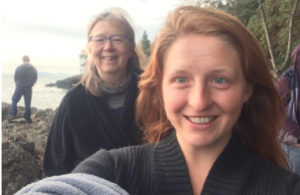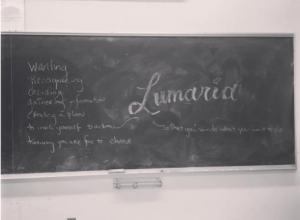
Coordinating to the Truth of my Wholeness Transformed my Acting
“Exhaled air goes up”
For the hundredth time that day, I ran through my Chekhov piece in a cramped little hotel room, this time facing Tim Bond and Cathy Madden, who were both looking remarkably bright, after a day of watching several hundred auditions. Tim and Cathy are highly distinguished artists and were there to recruit for the University of Washington. This is a rather odd place to first meet, but one that is familiar to those aspiring actors who attend the general URTA (University/Resident Theatre Association) audition when setting out for a Master’s degree. Cathy gave me the note, “Exhaled air goes up.” My inner monologue began to race, “What does that mean? Is my air going down? What does she want me to do?.” The stakes were high for this audition so I did what many actors do in this callback scenario, I graciously accepted the note and just decided to change something. The change paid off.
What I didn’t realize at the time was my mirror neurons understood more than my conscious mind in that moment and the change I made was likely one that emulated Cathy, who models stunning coordination after years of experience teaching Alexander Technique. This social “matching” is one thing Alexander Technique can reveal to us, and as actors we can harness this to our advantage. It can also throw our performance off when we’re unaware of it. The return on my efforts in training has been an abundance of constructive self-awareness I continue to gather. It translates to more choice in how I use my instrument, myself.

Several months following the URTA’s, I was standing in Cathy’s classroom inside the University of Washington’s Hutchinson Hall, a Harry Potter-esque building where students in the Professional Actor Training Program (PATP) spend nearly all their waking hours for three years. In the first few weeks of Alexander Technique classes, I had no idea what we were talking about – except that it had something to do with my neck. Indeed, Cathy teaches in a marvelous and unique way, a practical and applied style that empowers students to use the technique on their own in any moment of life. She also doesn’t offer easy Google search speed gratifying answers. Even though I was confused, my desire to explore and investigate never faltered. I could tell there was something worth knowing because I could feel I was somehow changing. This process feeds on curiosity and hinges on desire.
I am now eternally grateful for Cathy’s meticulous word choice and fierce protection of process over result. This stuff works as you are ready to receive it. And I am lucky to have received in the way I did. I now use it countless times over the course of any given performance as well as in any ordinary day. Each time I do, my definition of what it is expands. Taking the time to live – and to love – the questions has been a foundational change in how I approach art-making. It is how my imagination ignited.

I used to think that my job as an actor was to rigorously prepare so that I had all the answers. I was accused of “being in my head” it turns out, it’s impossible not to be, except that I was always in the rest of me too. I now ask to coordinate my body, cooperating with my wholeness, so that I can dance with questions, as each one reveals the next, deeper and deeper into the life of any given character, the texture and detail of any story. The wondrous result is my imagination surprises me with gifts. My senses engage and character memories deliver themselves in vivid ways I never would have thought of. Except I did.
The other gifts I’ve gathered from asking for better coordination is a clearer and more vivid relationship with my audience. After all, the purpose of all this imagining is to take everyone else along on a journey. Being on stage now is an invitation for every cell of me to be with every cell of you as we imagine a better world together. Using this process in performance, is a whole self, and resounding YES!
While heavily inspired by the process and principles, what I offer at Freehold is not strictly Alexander Technique. I continue to study and refine my skills in communicating this subtle act of willed change, and I stand at the beginning of my teaching journey.
I am still in search of the words for what exactly it is I feel I’m teaching. “Technique” often carries baggage of right and wrong counter-intuitive to my intent. And while I appreciate his body of work and years of research, I don’t feel F.M. Alexander should have all that much to do with the change I am making in my body.
What I do teach is wholeness. I walk with my students as they navigate their way toward the yes plan for what they want to do. I hope to empower people to realize they have more choice both in their performances, and their lives.
And, yes, it turns out, exhaled air goes up.

Resources
Books:
_______________________________________________________________
Alyssa Franks is a graduate of UW’s Professional Actor Training Program with an MFA in Acting, and teaching online for Freehold during our Spring quarter 2020.


